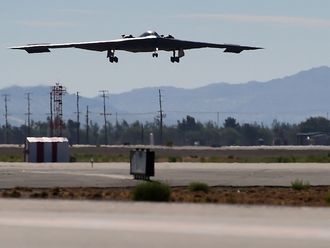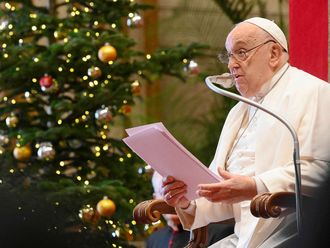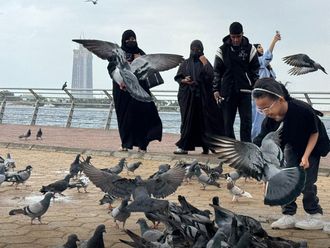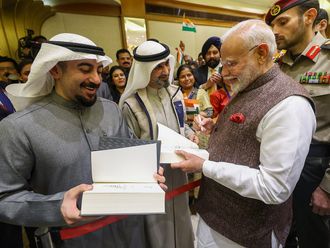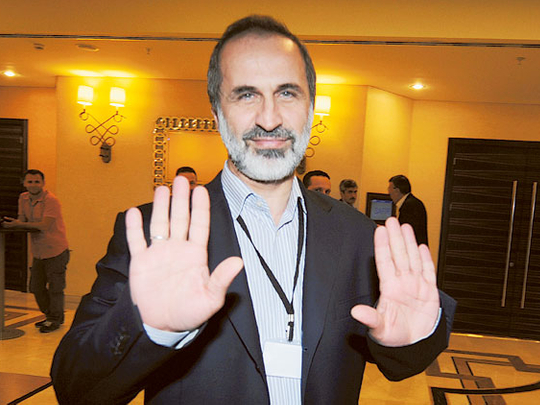
Istanbul Syria’s main opposition group opened key talks Thursday in Istanbul to debate whether to negotiate with the regime on ending the bloody two-year civil war, as proposed by the US and Russia. During their three-day meeting, the Syrian National Coalition — which is under fire from both its backers abroad and rebels on the ground — is also expected to choose a new president, discuss expansion to include new members and decide the fate of an interim rebel government, opposition members told AFP. The meeting in Turkey comes as rebels face a massive onslaught by President Bashar Al Al Assad’s forces and Lebanese Shiite movement Hezbollah in insurgent bastion Qusayr, in central Syria. Since the Syrian conflict erupted in March 2011, more than 90,000 people have been killed in the spiralling fighting between Al Assad’s regime and the rebels battling to overthrow it.
The opposition has long held that it can only enter into talks with members of the regime given international guarantees that talks would lead to his fall from power. “There is a condition that Al Assad resigns” under the US-Russian peace initiative dubbed Geneva 2, Coalition member Salem Al Moslet said on the conference sidelines.
However, with numerous thorny issues on the Coalition’s plate, Moslet added that the issue was not on the agenda for Thursday.
“But what is clear is, should the opposition’s condition not be met, then I think we should call it the Lavrov conference,” he said - a reference to Russian Foreign Minister Sergei Lavrov, a key Al Assad ally.
The meeting starts a day after backers of the anti-Al Assad uprising gathered in Jordan to push for peace in Syria.
The meeting included US Secretary of State John Kerry and his British counterpart William Hague.
In their closing statement early Thursday, the Friends of Syria group told Al Assad to commit to peace, warning that they would boost their backing of the opposition if he failed to negotiate a political transition.
In Istanbul, some regime opponents said it was unclear whether they would be able to make a final decision on Geneva 2 by the end of their meeting.
The Coalition is under pressure from its international backers to enter talks with the Al Assad regime, but if it complies the group risks losing what little legitimacy it has left with fighters on the ground. “The Coalition and (key opposition movement) the Syrian National Council have made clear their condition to any talks is the resignation of Al Assad,” Coalition member Samir Nashar said. “I think the revolutionaries would turn their back totally on the political opposition” should this condition remain unfulfilled, he added. But with a vast onslaught on Qusayr leaving scores dead in the past week, Al Assad appears as far as ever from giving up. In an interview with an Argentinian newspaper this month, Al Assad implied that he would stay until the next scheduled election in 2014.
“The regime and its backers are trying to change the situation on the ground militarily, in order to gain the upper hand in negotiations,” Nashar said. “That’s why Hezbollah and Iran are intervening in such an open way (in Qusayr). Again, this is costing the Syrians blood,” he added.
At the Amman meeting, the US urged Al Assad to commit to peace. Kerry said that “in the event that we can’t find that way forward, in the event that the Al Assad regime is unwilling to negotiate... in good faith, we will also talk about our continued support and our growing support for the opposition”. Hague said that only Al Assad’s departure could clear the way for a settlement. The aim of Geneva 2, the British foreign secretary stressed, would be to agree on the formation of “a transitional government with full executive authority, formed on the basis of mutual consent.”


